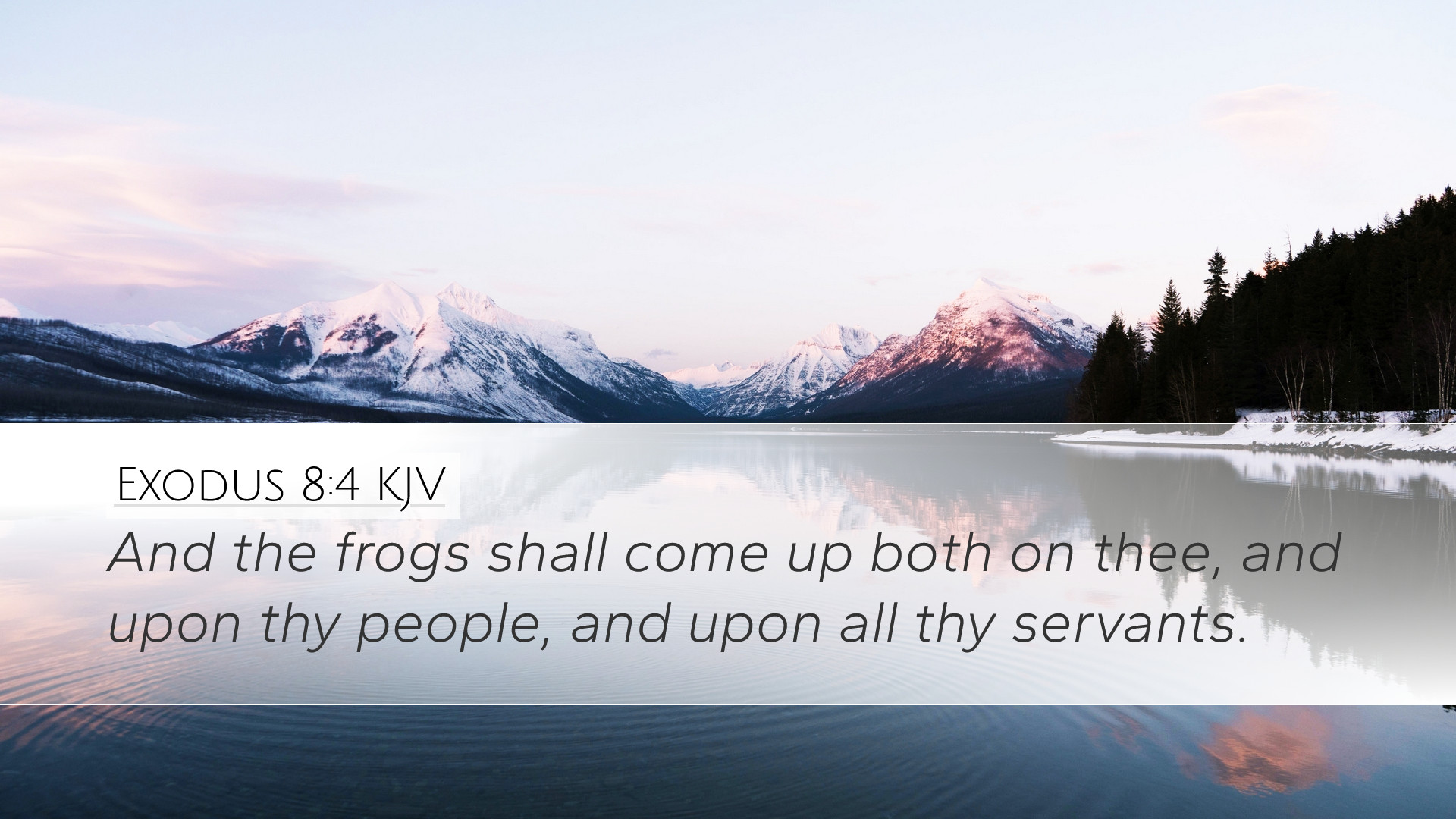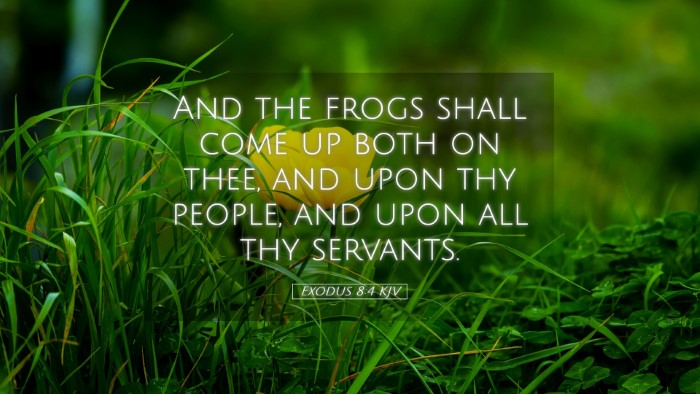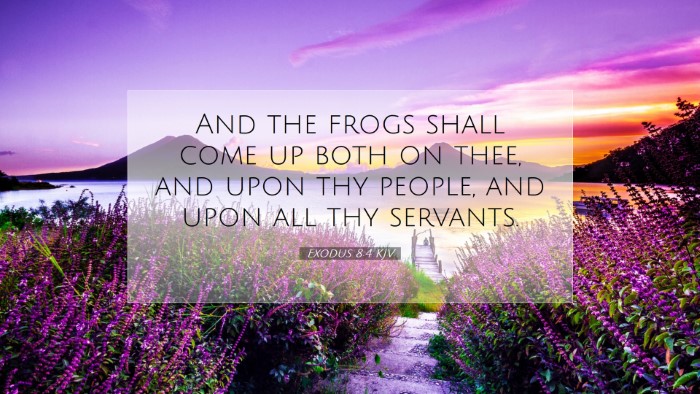Commentary on Exodus 8:4
Verse Analysis: Exodus 8:4 states, "And the frogs shall come up both on thee, and upon thy people, and upon all thy servants." This verse represents one of the plagues inflicted upon Egypt, serving not only as a form of judgment but also as a theological declaration of God's supremacy over the Egyptian deities and their false notions of control.
Introduction
This passage occurs within the gripping narrative of the Exodus, where God demonstrates His power through a series of plagues. The Jewish and Christian traditions interpret these acts as significant historical events that reveal both God's judgment against sin and His commitment to redeem His people. Understanding the significance of the frogs as a plague provides rich thematic insights into divine sovereignty, the nature of judgment, and the human response to divine authority.
The Context of God's Judgment
Historical Context: The plagues of Egypt, as chronicled in Exodus, were not merely arbitrary but were deliberately chosen to undermine the Egyptian gods. The frog was sacred to the Egyptians, associated with fertility and childbirth. By unleashing a plague of frogs, God demonstrated that He alone is sovereign over creation and that relying on false gods leads to chaos.
Theological Implications: Each plague builds on the idea that God is not only delivering His people but also asserting His power over Pharaoh’s hardened heart. The frogs invading homes symbolize a direct challenge to the cultural and religious life of Egypt, which was rooted in the veneration of nature and its creatures.
Insights from Commentaries
Matthew Henry
Henry notes that the abundance of frogs illustrates the overwhelming nature of God’s judgment. He emphasizes that the plagues served as both retribution for the oppression of Israel and an invitation to repentance. The number of frogs, infiltrating every aspect of life, represents the inescapability of God's judgment when it is pronounced.
Albert Barnes
Barnes highlights the practical implications of this plague. He illustrates how the frogs' presence was a direct nuisance that invaded the domestic life of the Egyptians. It compelled them to recognize the reality of their situation. Barnes suggests that this signifies how judgment can lead individuals to reflect on their spiritual condition, prompting a potential turning towards God.
Adam Clarke
Clarke provides a detailed linguistic analysis, noting that the word used for frogs suggests swarming, indicating not just presence but an invasion. This serves as a reminder that divine judgment can become a reality that overwhelms and disrupts daily life. Clarke emphasizes that the frogs, which brought a stench and discomfort, point to the consequences of a hardened heart against God's commands.
Practical Applications
- Awareness of Idolatry: Modern readers may reflect upon their own idols and false dependencies. Just as the Egyptians' reliance on frogs brought trouble rather than solace, so too can contemporary beliefs lead to spiritual peril.
- Call to Repentance: The story calls for a recognition of personal and corporate sin, urging a return to God. The plague reflects God's desire for His people to acknowledge Him and turn from their ways.
- Understanding Divine Sovereignty: As the plagues unfold, we see God's authority over all creation, prompting believers to trust in His ultimate plan despite the prevailing challenges of life.
Conclusion
Exodus 8:4 stands as a pivotal verse within the narrative of the Exodus. It encapsulates the themes of judgment, the consequence of idolatry, and the sovereignty of God. The insights gathered from the commentaries not only enrich the understanding of this text but also provide a relevant framework for contemporary application. As pastors, students, theologians, and scholars engage with this text, they are invited to consider both the historical significance and the living implications of God's word as it continues to resonate through time.


